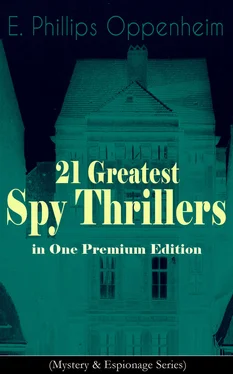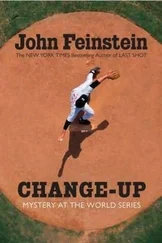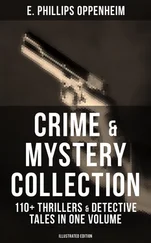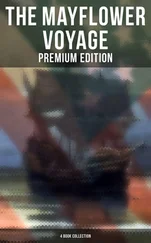“One of nature’s dictators,” was Charles’s only remark after the door was closed.
Table of Contents
The church clock on the other side of the square struck eleven as Joseph left the salon. Charles glanced at his watch with a slight frown.
“At what time was Fritz to report to us this morning?” he asked.
There was the same faint trace of uneasiness in Blute’s expression as he answered.
“Half-past ten he was to have been here. If that clock is right it is eleven o’clock.”
The frown upon Charles’s forehead deepened.
“It isn’t like Fritz to be even five minutes late,” he remarked. “You took him to the night market after you left me, I suppose?”
Blute smiled at the recollection.
“I not only did that but I took him round to the stalls. First of all we bought the largest basket you could imagine and then Fritz, who knew what he was about, I must say, filled it. I won’t disturb your early morning appetites with all the details, but there was sausage, there was ham, there was pâté , there was jam, there were rolls, butter, wine, beer—everything you can think of. Then I bought a little cheap crockery and packed him back in the taxi. He had made up his mind to stop and share the feast, I think, but anyway he promised to visit them early this morning with coffee and rolls and be here punctually.”
“At what time was he to have been here?” Charles asked again.
“At half-past ten. Still, the streets are very-crowded and he might easily be held up.”
“Will my adorable secretary telephone down and ask if the taxicab for Mr. Mildenhall has arrived?” Charles suggested.
Patricia obeyed with a slight grimace. She set down the receiver a moment later.
“Your man has just arrived,” she announced. “He is on his way up.”
They were all a trifle uneasy and there was a prompt response to the expected knock at the door. A glance at Fritz as he entered the room was sufficient to show them that something had happened. He was walking with a decided limp. He closed the door behind him carefully and advanced to the centre of the room.
“What’s gone wrong?” Charles asked anxiously.
“ Ach, mein Herr ,” Fritz faltered, “I do not think that it was my fault. Wait, and I shall tell my story. The service steps are steep and I did not take the lift. I didn’t want to attract any attention.”
“What is the trouble?” Blute demanded.
“I will tell my story,” Fritz repeated.
Charles made a sign towards the door. Blute hurried over and locked it. Fritz pointed to him.
“Together,” he began, “we bought much that was good last night to eat and to drink. The Herr Blute left me and I drove back to where the two Gestapo were waiting for me. All seemed well. I opened the door quietly. The two were playing cards by the light of the torch. When they saw the basket they howled with joy. The German was like a wild animal. My cousin—he is thin to look at but he eats as no other I have ever seen. I opened the wine, put out the crockery the Herr here had bought and I took leave of them. My cousin, he wished me good night without looking up from his plate; the German, his mouth was too full to speak. They never even looked out as I passed through the door. They were safe. I locked them in.”
Fritz paused for breath. His voice was becoming steadier. He leaned forward.
“This morning at nine o’clock I left my car in that corner where it is out of sight, I crossed the yard, I listened for a moment. It seemed to me then that everything was very quiet. I opened the door very carefully, as Mr. Blute had shown me. The moment it was a few inches open, out came a great hand and seized me by the collar. I was dragged in. It was the German! He was grinning like a fat, fair devil. In his left hand he held the revolver my cousin had prayed me to leave with him. There were no signs of Johann about the place, but the remains of their supper were all there. There were broken plates, glasses, a stain where wine had been spilt and food lying about. The German plumped me up against the wall.
“‘Now then,’ he shouted, ‘there is some secret about this place. There’s money here or stolen goods. What is it? Where is it? No good your twitching about like that. You’ll tell the truth or you’ll go where your cousin has gone.’
“‘Have you killed him?’ I asked.
“He grinned at me. When I think of that grin I can forgive myself for everything!
“‘You can look for him when I’ve done with you, if you can crawl so far,’ he sneered. ‘You didn’t think when you left him your revolver that I might take a fancy to it, eh?’
“It was then, at that moment, Herr Mildenhall—Herr Blute,” Fritz continued, “that my brain began to work a little. The German’s eyes were red, his face was all patchy. The bottle of wine we had brought, the beer bottles and the brandy bottle were all lying on the floor empty—except for the brandy. There was just that much left of the brandy,” Fritz went on, holding up three fingers. “The German was still half drunk but he was terribly determined. I was sure that he had murdered Johann. There was bloodshed in his eyes when he looked at me. I think he was aching to swing that revolver up into line and shoot me. He began to shuffle a little nearer.
“‘I know nothing about this place,’ I told him. ‘I brought the gentleman who sent you your supper up here. He’s been living in this room.’
“The German jeered at me.
“‘Him live here? What for? To guard something. If he lived here in a hole like this, there’s treasure about. I’ll—’
“He hiccuped. He made noise enough doing it to awaken the dead,” Fritz went on, his face whiter than ever, his eyes glaring. “Then he retched and vomited right across the room. The effort made him stagger. He dropped the revolver.”
They were all three very quiet indeed. Their eyes were fixed upon the chauffeur.
“It was a clumsy thing,” he said. “It rolled over on the floor. I am good on my feet. I jumped. Oh, it was a long jump! I hit my leg against something as I landed. I fell on the revolver—it was in my hand—he was slipping about looking like a great angry devil. There were two chambers gone—four left. I emptied all four into him. The first one only grazed him but the second, third and fourth all went into his chest. He hiccuped once more—and that was the end of him.”
There was silence in the room. Patricia was deathly pale. Blute was wiping the sweat from his forehead. Charles threw open the window.
“Well done, Fritz!” he said calmly. “You were a fool to leave the revolver with your cousin. The rest of your story is good. Now, what about Johann?”
“When I saw that the German was dead,” Fritz went on, “I hurried over to the screen. Johann was lying across the bed. I think they must have been playing cards in that spot for half the pack was scattered about the floor. He had a bad wound on the head and a bullet wound through his shoulder, but he was still breathing. I got him to swallow a little brandy. Then he opened his eyes. I bathed his head and gave him some of the hot coffee. He sat up. Then he told me that the German had stolen up behind him and hit him a blow with a bottle whilst he was sorting his cards. He had taken the revolver, all his money and refused to believe that Johann did not know what treasure was hidden in the place. Johann knew no more than the German did, so in the end, in a sort of half-drunken fury, he shot him.”
“What became of the body?” Charles asked quietly.
“Johann is still alive,” Fritz concluded. “I dragged him out, put him into my cab and drove him to one of the hospitals. I said that I had picked him up on the doorstep of a gay house early this morning. I gave a false name and address, and they took him in.”
Читать дальше












